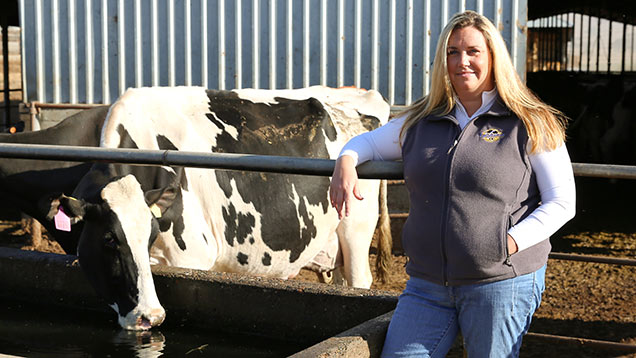Farmer Focus: Farm labour is difficult to come by
 © Brianna Frey
© Brianna Frey Life, in general, is pretty good on our organic dairy and egg ranch, for the time being.
Everyone who farms knows there are good times and many more bad times. We feel fortunate that organic products in the western US are in high demand right now.
However, one thing remains the same, farm labour is increasingly hard to come by.
See also: Read more from our Livestock Farmer Focus writers
On our Californian farm we primarily have Hispanic farm labourers, with a few high school kids helping out on weekends and during the summer.
Our farm of 350 milking Holsteins and 6,000 pasture hens needs five full-time dairy employees and one full-time poultry employee.
Two guys milk, one feeds calves and scrapes barns, another rakes beds, pushes cows, and checks groups. Another collects eggs, fills feeders and nesting boxes.
Our employees get free housing for themselves and immediate family. Water, electric, gas and garbage fees are all covered by the business.
We provide a week’s paid vacation and three paid sick days, each year.
With all that we offer it is still, increasingly, difficult to find labour. Half of our employees have worked for us for more than six years.
But when it comes time to find a new employee it sometimes takes six months before we even come across someone who wants to work on a farm and generally they don’t work out for long.
I have recently been thinking of ways to make our farm more automated or simplified to reduce our labour.
I have been researching more on rotary parlours that utilise robots for pre- and post-dip. This could cut out one employee.
Our barn is a “flat barn” or “California walk-thru”. The cows and milkers are on the same level, requiring the employees to have to bend several times with each cow.
Having a rotary parlour would give employees a more desirable working position. They also wouldn’t have to travel as much within the barn. It is a more stationary position which would allow for rubber footing to be installed, also for employee comfort.
It is important to change with the times and stay current with technology. Nowadays there is technology available that will help with our labour problem. So I continue to always learn about new ideas.
Jessica McIsaac milks 350 pedigree Holsteins in Petaluma, California, with her husband Neil. They sell organic milk and also have 6,000 laying hens.
